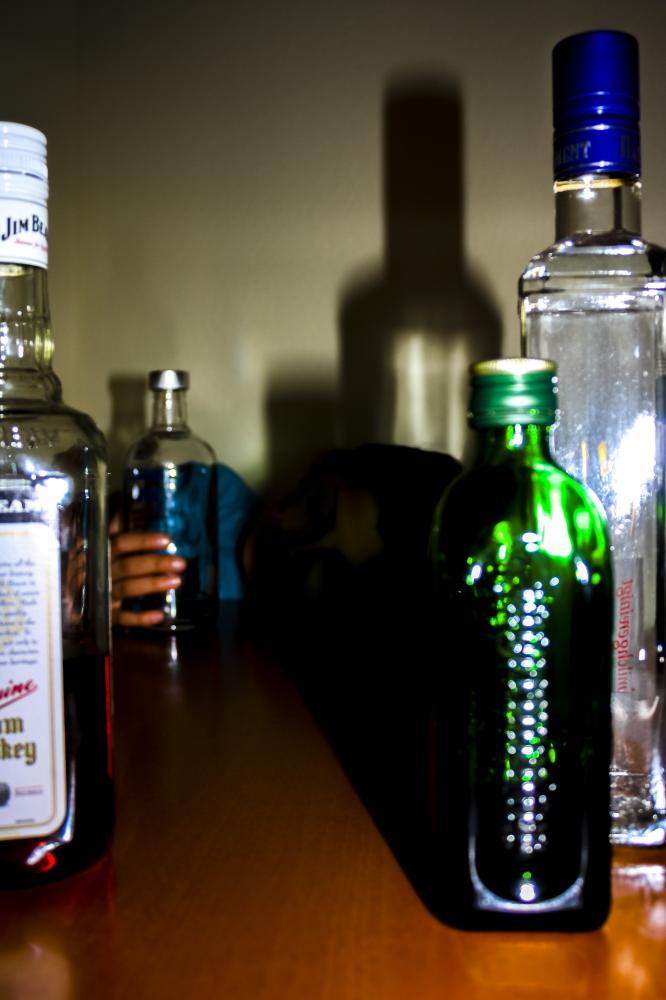Visit Us
Get Directions
With the right program and commitment, IOP residential treatment can be a powerful tool for managing mental health and achieving…

As an integral part of Benchmark Transitions, I’ve witnessed first-hand the transformative power of Intensive Outpatient Programs (IOP) within a residential treatment setting. IOP residential treatment combines structured therapy with the flexibility of continuing everyday activities, an approach we have seen yield positive outcomes for our clients.
IOP residential treatment is a type of program that strikes a harmonious balance between rigorous addiction treatment and the autonomy of outpatient care. Clients participate in scheduled therapeutic sessions — including group discussions, individual counseling, and skill-building workshops — that are designed to tackle substance abuse and any co-occurring mental health disorders.
At Benchmark Transitions, we’ve crafted our IOP residential treatment to be robust and multi-faceted. As treatment progresses, clients often find themselves rediscovering passions and rekindling their zest for life, all while learning to navigate the complexities of recovery.
Our program does not just focus on the cessation of substance use. Instead, we delve into the myriad factors that underpin addiction, from family dynamics to mental health. It’s about equipping our clients with the tools to thrive outside the confines of addiction.
In a setting that is both nurturing and empowering, we integrate a variety of therapies that address emotional, physical, and psychological well-being. Art therapy sessions, for example, tap into the creative outlets of expression, while yoga and mindfulness may help soothe the tremors of anxiety.
Through this comprehensive multi-threaded strategy, healing becomes an experience that transcends beyond the individual, touching the lives of families and communities.
Our treatment modalities are not stopgap measures; they are the building blocks of a sustainable recovery. Each brick laid in the framework of our IOP residential treatment is strategically placed to build the resilience and autonomy of our clients. The end goal is to ensure they do not merely survive post-treatment but thrive.
The sessions provided during our program sharpen life skills, impart relapse prevention techniques, and foster a sense of accountability that often goes amiss when battling addiction. It’s not uncommon to see our clients transform their outlook on life, discover newfound confidence, and amass an arsenal of coping mechanisms that serve them for years to come.
True to our founding ethos, we believe in empowering our clients to take charge of their lives. Our IOP residential treatment champions this cause by providing the structure and support necessary to encourage personal growth.
In this space, clients are not defined by their addiction. Instead, they are seen and nurtured as individuals, each with a unique story and the potential for an abundant future. By creating an environment that fosters self-reflection and challenges limiting beliefs, we help pave the way for personal transformation.
As each layer of the old self is peeled away, the individual emerges, as if from a cocoon, ready to spread their wings and embrace the possibilities of a life reclaimed from addiction.
Part of our IOP residential treatment involves experiential learning — therapeutic activities that promote self-discovery through real-world experiences. These could range from community service to outdoor activities that challenge physical and emotional boundaries, all curated to support the journey to sobriety.
In these shared moments, our clients often encounter epiphanies about their strength and resilience. It’s a space where life’s challenges are met with courage, and victories, no matter the size, are celebrated.
Another jewel in the crown of IOP residential treatment is the chance to forge meaningful connections with peers on a similar journey. The camaraderie that blossoms in group sessions often sprouts into supportive networks that last well beyond the treatment program.
In our community at Benchmark Transitions, we have seen clients become each other’s cheerleaders, confidants, and lifelines. These bonds are not only beautiful to witness but are also pivotal in the healing process.

With each shared story and each moment of mutual understanding, the burdens of the past become lighter, and the path forward becomes clearer.
Recognizing that no two individuals are alike, our IOP residential treatment is not a one-size-fits-all program. Personalization is key. We create tailor-made treatment plans that address the specific needs and goals of each client. This degree of customization ensures that the journey towards recovery is as effective and sustainable as possible.
From the initial assessment to the ongoing adjustments made throughout the program, we ensure that each client’s voice is heard and their progress is meticulously monitored. This is the essence of bespoke care — a treatment journey that acknowledges individuality while guiding towards common goals of health, happiness, and sobriety.
At Benchmark Transitions, we strive for excellence in all we do. Our commitment to providing outstanding IOP residential treatment is unwavering. We continually assess and enhance our programs to ensure they meet the highest standards of care and efficacy.
Through nearly three decades of experience, we have learned that the journey of recovery is not a linear path. It is a mosaic of experiences — each a testament to the courage and resilience of those who walk it. Together, we strive to create a legacy of transformation, one life at a time.
In conclusion, IOP residential treatment at Benchmark Transitions is a cultivated space that fosters growth, challenges the norms of addiction treatment, and focuses on the holistic well-being of our clients. By intertwining clinical expertise with compassionate care, we aim to unlock the full potential of those we serve.
Our treatment may be intensive, but it is also nurturing, allowing each client to heal, learn, and prepare for the journey ahead with confidence and support. As we look forward to the future, we remain dedicated to walking alongside our clients on their path to recovery, one step at a time.
If you or a loved one is seeking a transformative experience in overcoming addiction, know that at Benchmark Transitions, hope is embraced, change is celebrated, and new beginnings are always possible.

Intensive Outpatient Program, commonly referred to as IOP, is a form of therapy that strikes a healthy balance between inpatient and outpatient care. In our practice at Benchmark Transitions, IOP therapy embodies our commitment to provide effective treatment while allowing clients to maintain their daily responsibilities. Picture this as akin to taking a deep dive into therapeutic experiences several times a week without the need to stay in our facility around the clock.
The length of IOP programs typically varies based on individual needs but generally range from a few weeks to several months. At Benchmark Transitions, our programs are designed to reflect the personal growth and progress of our clients. We constantly assess and adjust the duration to maximise the efficacy of treatment, ensuring that when you embark on this journey with us, it’s paced just right for your specific path to recovery.
In the context of drug treatment, IOP represents an intensive yet flexible approach to overcoming addiction. It’s a nuanced program meticulously crafted to navigate the complexities of substance abuse and any coexisting mental health conditions. Our clients engage in structured therapeutic sessions without the full-time commitment of residential care. It’s the kind of program that champions the spirit of healing while respecting the rhythm of your life’s commitments.
Dealing with dual diagnosis demands an integrated approach that addresses both substance abuse and mental health disorders concurrently. At Benchmark Transitions, we’ve found that a combination of medication management, cognitive behavioral therapy, and support groups tends to be most effective. This multifaceted strategy ensures that both the addiction and any associated mental health conditions are treated in tandem, paving the way for a more holistic and sustainable recovery.
Personalization is the cornerstone of our IOP residential treatment at Benchmark Transitions. We start with a thorough initial assessment to truly understand each client’s unique story. From there, we construct a tailored treatment plan featuring specific therapies and activities that resonate with their personal needs and objectives. It’s an ongoing conversation between our clients and us, where their voice guides the adjustments and refinements of their treatment plan. This is the art of bespoke care – it’s not just about guiding you through the storm but doing so in a way that honors your individual journey.
Substance Abuse and Mental Health Services Administration (SAMHSA) offers information on substance use disorders, treatment options, and resources https://www.samhsa.gov/find-help.
National Institute on Drug Abuse (NIDA) provides research-based information on drug abuse and addiction, including treatment approaches https://www.drugabuse.gov/.
National Institute on Alcohol Abuse and Alcoholism (NIAAA) offers insights into alcohol-related issues and treatment methodologies https://www.niaaa.nih.gov/.
Centers for Disease Control and Prevention (CDC) provides information on health-related topics including addiction and mental health https://www.cdc.gov/mentalhealth/index.htm.
MentalHealth.gov serves as a portal to federal resources related to mental health https://www.mentalhealth.gov/.
American Society of Addiction Medicine (ASAM) provides resources and advocacy for addiction treatment professionals https://www.asam.org/.
The National Alliance on Mental Illness (NAMI) is a grassroots mental health organization offering support and resources for individuals and families https://www.nami.org/Home.
The National Council for Mental Wellbeing provides support and resources for mental health and addiction treatment organizations https://www.thenationalcouncil.org/.